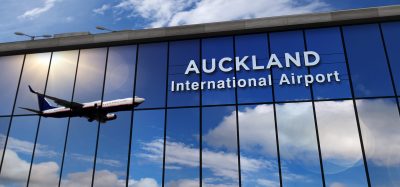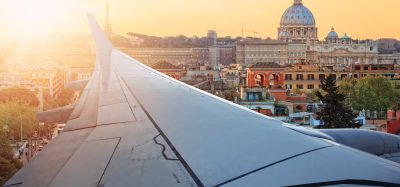New collaboration will test feasibility of autonomous vehicles in airports
- Like
- Digg
- Del
- Tumblr
- VKontakte
- Buffer
- Love This
- Odnoklassniki
- Meneame
- Blogger
- Amazon
- Yahoo Mail
- Gmail
- AOL
- Newsvine
- HackerNews
- Evernote
- MySpace
- Mail.ru
- Viadeo
- Line
- Comments
- Yummly
- SMS
- Viber
- Telegram
- Subscribe
- Skype
- Facebook Messenger
- Kakao
- LiveJournal
- Yammer
- Edgar
- Fintel
- Mix
- Instapaper
- Copy Link
Posted: 10 September 2019 | International Airport Review | No comments yet
Georgia Tech and Delta Airlines have been testing autonomous vehicles in the hope to collect data on the potential applications within airports.


Georgia Tech and Delta Airlines have been working together in the hope to advance the autonomous vehicle and infrastructure research at the Curiosity Lab in Peachtree Corners, the Atlantan suburb.
This research will eventually be able to tell if autonomous vehicles are viable for use within an airport environment.
The Curiosity Lab is a 5G-enabled smart city living lab that is equipped with a one-and-a-half-mile-long autonomous vehicle testing track which collects data on connected IoT devices.
“Our 5G-enabled living laboratory will give Georgia Tech researchers the opportunity to push the frontier of emerging technology in a real-world setting that is almost impossible to replicate in a closed lab,” said Betsy Plattenburg, Executive Director of Curiosity Lab at Peachtree Corners.
The research aims to test the viability for the use of autonomous vehicles at airports and similar establishments. Delta Airlines is testing whether autonomous cars, trucks and buses could help with airport routines such as customers making tight connections between flights, delivering delayed baggage or the transportation of aircraft parts.
Gil West, Delta’s Chief Operating Officer, stated: “Autonomous vehicle technology is one of those innovations we see as having the potential to improve employee safety, the customer experience and operational performance, and this partnership will help us explore all of those possibilities.”
Debra Lam, Managing Director for Smart Cities and Inclusive Innovation at Georgia Tech, said: “This is a wonderful example of industry-university-local government coming together to advance innovative solutions to the built environment and mobility. Providing access to more than $4 million in infrastructure will help our researchers test new technologies and further our mission of serving our community through innovation.”
Related topics
Airside operations, Autonomous Technology, Runways and pavements, Sustainability, Sustainable development


















